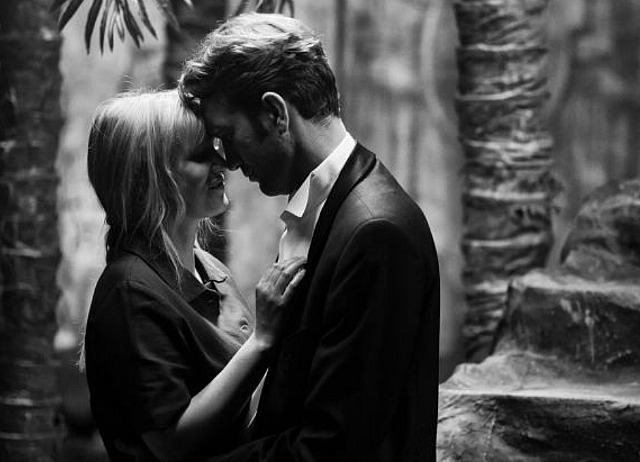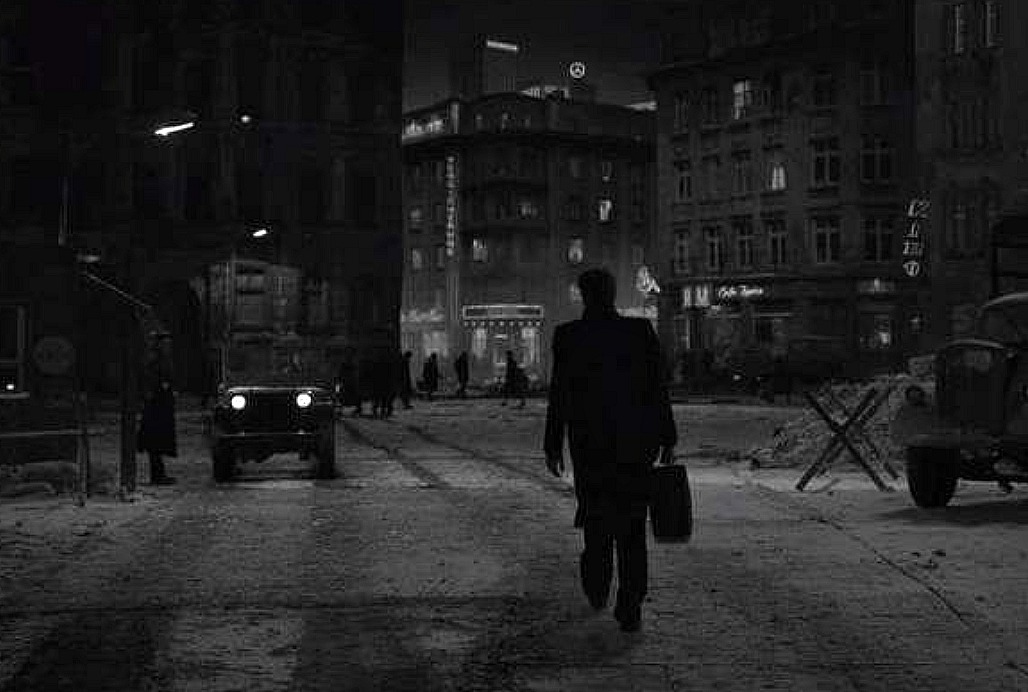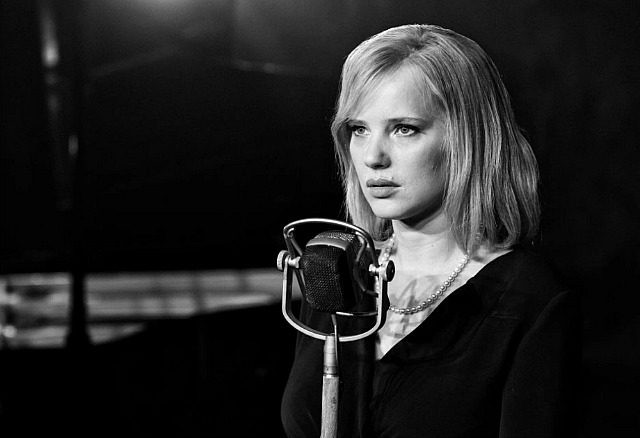Seriously moved, enthralled or charmed as I am by Green Book, Roma, Vice, First Reformed, Can You Ever Forgive Me?, Happy as Lazzaro, Capernaum, The Mule, Black Panther, First Man, portions of Bohemian Rhapsody and the first half of A Star Is Born, Pawel Pawlikowski‘s Cold War sits at the top of the heap. Yes, even at a higher aesthetic station than Alfonso Cuaron‘s black-and-white masterwork. I’m sorry but I love Cold War a bit more.
If you ask me Cold War is the cleanest, sharpest and most tightly composed film of the year…a period haunter…a kind of half-Polish Communist, half-Montmarte jazz cavern love story that will knock your eyeballs out if you’re any kind of black-and-white connoisseur or a boxy-is-beautiful fanatic like myself.
No other 2018 film rang my bell quite the same. I don’t care what category it’s in — no other film is as concise and self-aware, as visually glistening and fatalistic and bang on the money as Cold War. It’s pure silvery pleasure, perfectly distilled, the highest manifestation of luscious arthouse porn I’ve run into all year. And it offers the greatest female performance of the year — Joanna Kulig as the sly, at times insolent, sometimes half-crazy Zula.

I recently insisted that Kulig deserves a Best Actress nomination. Her performance reignites the spirit of Jeanne Moreau in Jules and Jim (and if that doesn’t excite your spirit then I don’t know what) along with a spritz of early ’50s Gloria Grahame. A femme fatale songbird, an emotional force of nature, trouble from the word go.
You can’t watch Cold War and not fall in love with how it looks and feels. Those gleaming, whistle-clean silvery tones, Łukasz Żal‘s somewhat unusual bottom heavy framings, that feeling of being in a repressive but exotic realm, and yet one that becomes more and more of a “home” in a sense, and more familiar by the minute.
It also delivers something relatively rare in our 21st Century realm, which is a feeling that the viewer hasn’t been shown enough — that he/she hasn’t had enough time to really savor the flavor and atmosphere and characters.
What’s the one complaint about mainstream features that almost everyone has voiced at one time or another? Easy — the running times are too long. Particularly, it seems, in the case of superhero films, which almost always clock in at a hefty two hours plus. (Two of the shortest were Mark Steven Johnson‘s Daredevil and Brett Ratner‘s X-Men: The Last Stand, which ran 103 and 106 minutes respectively.) In 2013 Business Insider‘s Kirsten Acuna reported that the average length of the ten highest-grossing films of the previous decade had gone from just under two hours to more than 130 minutes.
By these standards running times of 100 to 110 minutes are regarded as average or even fairly disciplined, and lengths of 90 to 100 are almost unheard of. Don’t even ask about films that run less than 90 minutes. For that kind of brevity you need to go back to the 1930s.
In this light Cold War is a small narrative miracle. For it tells a love story that spans something like 16 or 17 years, starting in 1949 Poland and moving on to Paris in the mid ’50s and ending in the early to mid ’60s (or something like that) and managing to deliver the kinds of textures and time passages — the kind that one might expect from a much longer and grander-scaled film — in a mere 88 minutes.
That’s brevity, son. It’s also an example of master-class filmmaking.
AP critic Jake Coyle said that Cold War is “too short.” The Observer‘s Rex Reed called it it “both illuminating and haunting at the same time, and leaves you wanting more.” N.Y. Times critic Manohla Dargis wrote that “Pawlikowski has ideas he wants you to chew over, but at times his narrative brevity can make the story feel as if it’s stopping before it has really begun.”
In my book that’s an excellent thing. Instead of audiences shifting in their seats, exhaling and looking at their watch every 15 minutes, they’re saying “could you please make the film a bit longer? Feel free to take your time with the story. We don’t want it to end. The individual scenes and characters are so tasty and at times haunting that we’d like to pig out, but all we’re being served is a banquet of choice hors d’oeuvres.” But in the end you’ve really gone somewhere, really tasted something. You’re absolutely sure of that, deep down.
Reminder: “Last month Cold War won big at the European Film Awards, nabbing trophies for Best European Film, Best Actress (Kulig), Best Director and Screenwriter (Paweł Pawlikowski).


